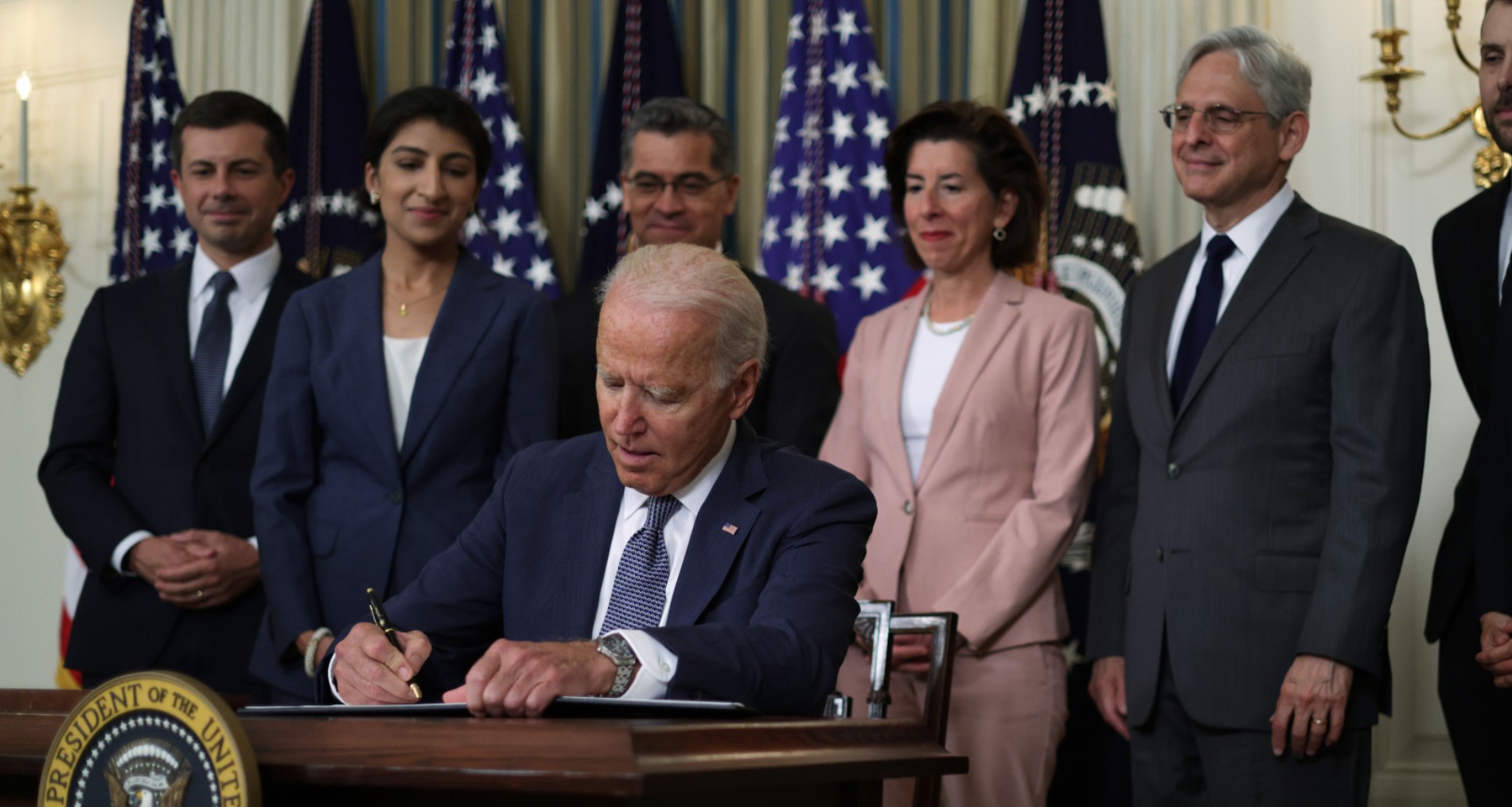OPINION: This article may contain commentary which reflects the author's opinion.
Transportation Secretary accepted some $250,000 in gifts and donations from mayoral candidates who later took in tens of millions in grant money he is doling out as part of a $210 billion infrastructure fund, a report noted Wednesday.
According to the Daily Mail, “Buttigieg’s top political donors received millions of dollars in city contracts after giving thousands to his campaigns while he was mayor of South Bend, Indiana.”
“Buttigieg’s political action committees took money from 23 companies who then got jobs from South Bend’s Board of Public Works whose members he appointed, documents obtained by” the outlet revealed.
On two separate occasions, said the report, Buttigieg, who at one time was a 2020 Democratic presidential contender, took in donations on the same day companies were awarded contracts.
The report adds:
Other city contractors gifted the mayor cigars, alcohol, and golf trips worth hundreds of dollars.
The companies, their executives, and spouses donated a total of $253,750 to Buttigieg’s campaigns and received a total of at least $33,310,426 in city contracts between 2011 and 2019.
After Buttigieg appointed one former company executive to the city’s Public Works department, the firm was then handed multiple infrastructure jobs and became one of Mayor Pete’s largest donors.
Buttigieg served as the mayor of South Bend from 2012 to 2020. He was appointed transportation secretary by President Joe Biden early last year.
According to government watchdogs, the pattern of donations and awarded contracts appear to implicate Buttigieg in a “pay to play” scandal while also raising concerns about whether the hundreds of billions the Transportation secretary gets to dole out as part of the $1.2 trillion bipartisan infrastructure bill will be put to the best use for the country.
“The pattern of contracts and donations appears to be a huge conflict of interest,” said Taxpayers Protection Alliance President David Williams in a statement to the Daily Mail.
“This really doesn’t bode well for the secretary of transportation when he has access to almost $1.2trillion in infrastructure money,” he continued. “This is alarming, and very concerning because this is the swamp personified. You don’t have to be a Rhodes Scholar to look at this and think that something’s wrong here.
“Was there a quid pro quo? Was there some sort of backroom deal for these projects? Taxpayers deserve answers,” he added.
South Bend city officials told the outlet that the Transporation secretary “was not involved in the awarding of engineering and construction contracts” and that all of them are awarded “through a professional procurement process that is public and transparent,” and then given “to the lowest, responsive, responsible bidder per State Law.”
In a statement to the outlet, the Transporation Department said that it has “consistently made transparency and accountability to the American people a top priority,” adding that federal grant money from the infrastructure law goes to fund states, cities, ports, and local entities, not contractors.
A department spokesperson went on to call allegations of corruption “absurd,” the Daily Mail said.
“The former Indiana mayor, 40, cultivated close relationships with construction firms during his tenure in South Bend, which became a large source of funding for his political campaigns,” the report noted.
“I’m stunned if it is true that South Bend Indiana doesn’t have laws on the books that prohibit this,” said Scott Greytak, Director of Advocacy for the U.S. branch of the nonprofit Transparency International, who denounced the “obvious stench” of Buttigieg’s long practice of taking donations from business owners who later were awarded city contracts.
“At the federal level, this would be entirely illegal. A federal contractor cannot make a contribution to a candidate, because of the obvious conflict of interest,” he added.
According to the Federal Election Commission, “Federal government contractors are prohibited from making contributions or expenditures in connection with federal elections.”
“You’re not going to find a smoking gun in how access, influence, and power works in American politics. So campaign finance restrictions are supposed to serve as proxies for preventing corruption,” Greytak continued.
“The idea that a company that has either a potential or a pending contract, or recently was a government contractor, is able to so expressly and openly give money to the people involved in those decisions, is a fundamentally corrupt system,” he said. “I’m stunned that the elected leaders there would want to operate in a system that allows for such potential perception of corruption.”
